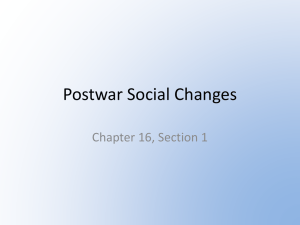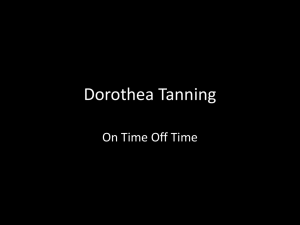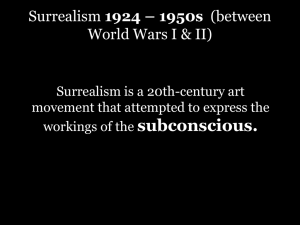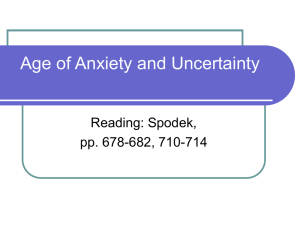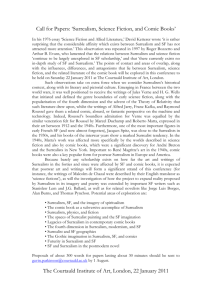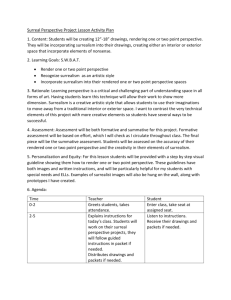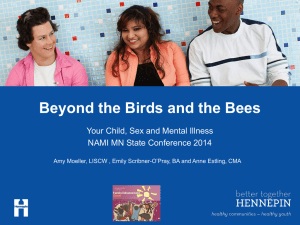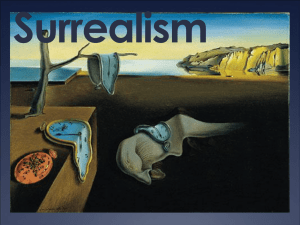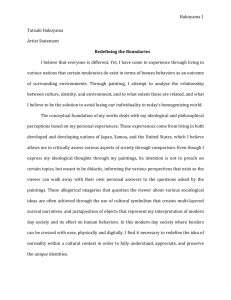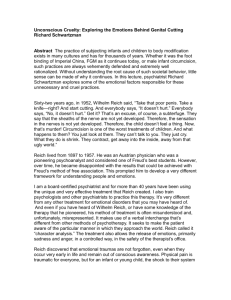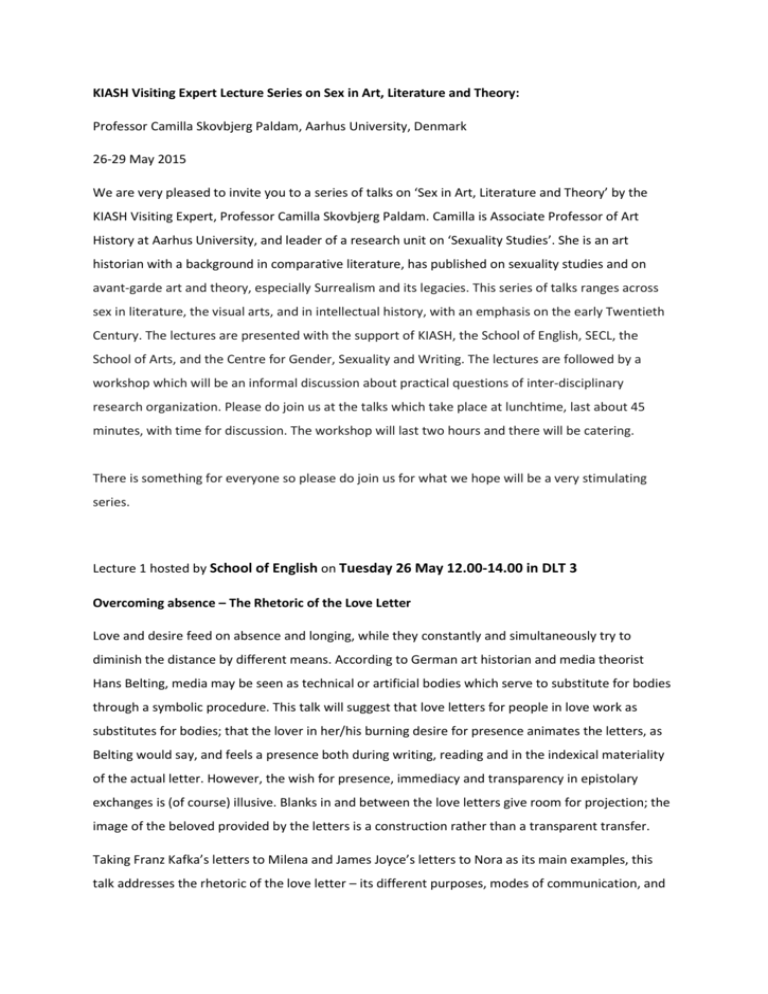
KIASH Visiting Expert Lecture Series on Sex in Art, Literature and Theory:
Professor Camilla Skovbjerg Paldam, Aarhus University, Denmark
26-29 May 2015
We are very pleased to invite you to a series of talks on ‘Sex in Art, Literature and Theory’ by the
KIASH Visiting Expert, Professor Camilla Skovbjerg Paldam. Camilla is Associate Professor of Art
History at Aarhus University, and leader of a research unit on ‘Sexuality Studies’. She is an art
historian with a background in comparative literature, has published on sexuality studies and on
avant-garde art and theory, especially Surrealism and its legacies. This series of talks ranges across
sex in literature, the visual arts, and in intellectual history, with an emphasis on the early Twentieth
Century. The lectures are presented with the support of KIASH, the School of English, SECL, the
School of Arts, and the Centre for Gender, Sexuality and Writing. The lectures are followed by a
workshop which will be an informal discussion about practical questions of inter-disciplinary
research organization. Please do join us at the talks which take place at lunchtime, last about 45
minutes, with time for discussion. The workshop will last two hours and there will be catering.
There is something for everyone so please do join us for what we hope will be a very stimulating
series.
Lecture 1 hosted by School of English on Tuesday 26 May 12.00-14.00 in DLT 3
Overcoming absence – The Rhetoric of the Love Letter
Love and desire feed on absence and longing, while they constantly and simultaneously try to
diminish the distance by different means. According to German art historian and media theorist
Hans Belting, media may be seen as technical or artificial bodies which serve to substitute for bodies
through a symbolic procedure. This talk will suggest that love letters for people in love work as
substitutes for bodies; that the lover in her/his burning desire for presence animates the letters, as
Belting would say, and feels a presence both during writing, reading and in the indexical materiality
of the actual letter. However, the wish for presence, immediacy and transparency in epistolary
exchanges is (of course) illusive. Blanks in and between the love letters give room for projection; the
image of the beloved provided by the letters is a construction rather than a transparent transfer.
Taking Franz Kafka’s letters to Milena and James Joyce’s letters to Nora as its main examples, this
talk addresses the rhetoric of the love letter – its different purposes, modes of communication, and
meta-reflections on writing, media, absence and presence. The talk will address how love and the
beloved are mediated in the articulated desire and longing of love letters. Finally, it will reflect on
what it means for the communication of love and desire that the media landscape has changed and
that now, instead of traditional letters, internet technologies have taken over the role once fulfilled
by letters.
Lecture 2 hosted by School of Arts on Wednesday 27 May 12.00-14.00 in DLT 3
Erotic Utopia – Wilhelm Reich’s influence on Danish Surrealism
It is a well-known fact that French surrealism of the 1920s and 30s had a strong emphasis on
eroticism, but the radical utopian turn surrealist eroticism got when it reached Denmark in the
beginning of the 1930s warrants further investigation. Danish artist Vilhelm Bjerke-Petersen (19091957) was the first to write a comprehensive introduction to Surrealism in a Nordic language,
namely the book Surrealismen. Livsanskuelse. Livsudfoldelse. Kunst (Surrealism. Outlook of life.
Conduct of life. Art), 1934. In this talk I will investigate Bjerke-Petersen’s erotic utopia, focusing on
the impact Wilhelm Reich’s psychoanalytical theory had on his ideas. My claim is that the inspiration
from Reich informed Bjerke-Petersen’s focus on sexual liberation, in contrast to French surrealism
which was more inspired by Freud. Where Freud saw a need for the Superego in culture, Reich
suggested that a liberated, ‘natural’ sexuality would free mankind of any impulses to violence and
suppression and lead to a classless society.
Lecture 3 hosted by SECL on Thursday 28 May 12.00-14.00 in DLT 3
The Child as Catalyst for Change – Free Upbringing, Free Sex and Socialism in early 20th Century
In the beginning of the 20th century, new theories of children, upbringing and sexual education
evolved in the wake of Sigmund Freud’s writings on children’s sexuality. Further, expressionist,
dadaist and surrealist artists took an interest in the child, glorifying its unspoiled spontaneity and
open-mindedness. Common to both theorists and artists of the period was a focus on liberation;
this, however, could be understood in many ways and to different extents. German psychoanalyst
Wilhelm Reich held one of the most radical beliefs, which in brief encompassed that a sexually free
upbringing would ultimately lead to a perfect socialist society. The aim of this talk is to investigate
and contextualise the role of the child in some of the revolutionary utopias of the 1930s.
Workshop Friday 29 May 12.00-14.00 in RX 11
How to Build and Run an Interdisciplinary Research Centre
This will be an informal discussion of the issues and problems in building and running an
interdisciplinary research centre. It will be an opportunity to exchange ideas and experiences,
including such topics as collaboration within and outside of the Humanities; finding a common
vocabulary; strategies for grant applications and publication; the European context. The emphasis
will be on sharing experiences and the focus will be on the process of development, how to identify
topics, and how to set aims and objectives.
If you would like to attend the workshop - or have any questions – please email David Ayers
(D.S.Ayers@kent.ac.uk) to confirm catering numbers.

